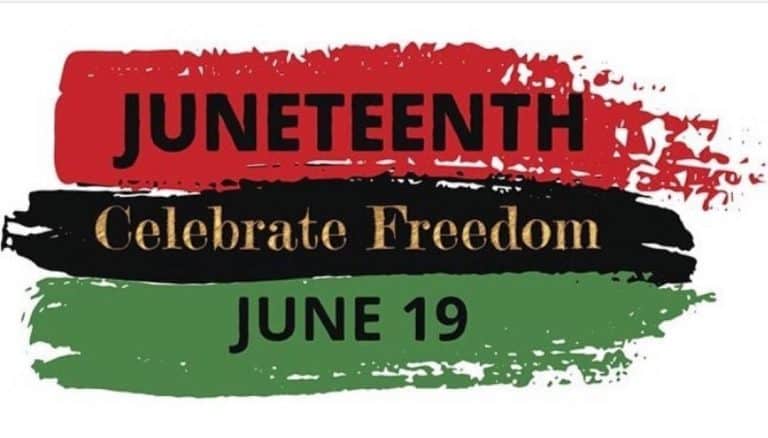‘America’s oldest Black holiday’: Virtual presentation highlights importance and history of Juneteenth
June 22, 2022
As part of a month-long celebration of Juneteenth, Charles Woods III, the education director and trainer for the Birmingham Civil Rights Institute, gave a virtual educational lecture hosted by the Intercultural Diversity Center on Tuesday night.
For the next 30 days, the IDC will have a recording of the virtual presentation on their website.
Juneteenth is a holiday that commemorates the emancipation of slaves in the United States. The name specifically references June 19th, 1865, which is when the last of the enslaved African-Americans in Texas were informed that they were free under the Emancipation Proclamation.
Woods, who graduated with a bachelor’s degree in history from Xavier University of Louisiana, travels around Alabama and educates people on the impact and importance of the civil rights movement. On Tuesday night, Woods gave a presentation on Juneteenth’s history, traditions and significance.
Though the date just recently acquired the status of being a federal holiday, Woods said Juneteenth is “America’s oldest Black holiday.”
From celebrations of Freedom Days on Jan. 1 in the late 1800s to commemorate the date the Emancipation Proclamation went into effect, to Jubilee Days in the early 1900s, Woods said African-Americans have been utilizing these events for decades as times to show their pride and that they could live the American Dream.
“[Jubilee Days] were days of hope and looking to the future for a time where all African-Americans in this country could ultimately really truly feel free,” Woods said.
Woods said Juneteenth is a “happy time, for fun, fellowship and food.”
Traditions for Juneteenth include family reunions, barbecues and sometimes parades. Any type of red food, such as red velvet cake, red soda and watermelon, are also common at celebrations. Additionally, tributes to African culture are common as well in the form of eating black-eyed peas and performing African dances.
Woods said observance of Juneteenth is important, because “iIt’s not just another day off… it’s not just Black independence day, either. If July 4th is not freedom for everyone, Juneteenth is.”
Additionally, Woods said Juneteenth is a reminder of how far we have to go as a nation. He said that, even though Juneteenth is now a holiday nationally as well as in the state of Alabama, there are still multiple days that have been dedicated to the Confederacy for years, one of which, Jefferson Davis day, falls in the month of June, and another, Robert E. Lee Day, falls on Martin Luther King Day. Woods said throughout the Alabama state capitol, the markers and plaques that commemorate Confederate soldiers make the building “a confederate monument in itself.”
The event, as well as all other programming the Intercultural Diversity Center has done this June, is relatively new due to Juneteenth’s recently-obtained status as a federal holiday in 2021.
Intercultural Diversity Center’s Assistant Director Shemaiah Kenon said that in 2021, “the [IDC] didn’t do anything because it was fairly new, and at the time, UA didn’t really have anything standard,” but this year, they have instituted a wealth of programs for faculty, students, and staff that are very intentional.
The Intercultural Diversity Center’s previous Juneteenth events this month have focused primarily on celebrating Black culture, but Kenon said the goal of this event was to “spark an interest to learn more about different cultures” as well as to “create a safe space… where people can get their questions answered.”
Kenon said the event was virtual in an effort to provide an opportunity to learn for people who can’t come to campus, covered the history of Juneteenth, its importance, and ways to celebrate.











